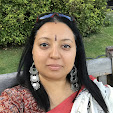From
The Washington PostU.S. Network Falters in Mideast MissionBy Craig Whitlock
Washington Post Foreign Service
Monday, June 23, 2008The Egyptian bureau of al-Hurra, an Arabic-language television network financed by the U.S. government, boasts a spectacular view of the Nile River and the capital's bustling streets. But inside, all is quiet.
The bureau's satellite link was unplugged with little explanation a few weeks ago by a local company, making it impossible to broadcast live. Since then, staffers have had to use a studio controlled by the Egyptian secret police, who have warned guests not to say anything controversial on the air.
Al-Hurra -- "The Free One" in Arabic -- is the centerpiece of a U.S. government campaign to spread democracy in the Middle East. Taxpayers have spent $350 million on the project. But more than four years after it began broadcasting, the station is widely regarded as a flop in the Arab world, where it has struggled to attract viewers and overcome skepticism about its mission.
Propaganda has become a primary front in the war against terrorism, with the United States and al-Qaeda each investing heavily to win over hearts and minds. This article examines one aspect of the U.S. effort to influence people through the airwaves. Tomorrow, another will look at al-Qaeda's online propaganda campaign.
Since its inception, al-Hurra has been plagued by mediocre programming, congressional interference and a succession of executives who either had little experience in television or could not speak Arabic, according to interviews with former staffers, other Arab journalists and viewers in the Middle East.
ad_icon
It has also been embarrassed by journalistic blunders. One news anchor greeted the station's predominantly Muslim audience on Easter by declaring, "Jesus is risen today!" After al-Hurra covered a December 2006 Holocaust-denial conference in Iran and aired, unedited, an hour-long speech by the leader of Hezbollah, Congress convened hearings and threatened to cut the station's budget.
"Many people just didn't know how to do their job," said Yasser Thabet, a former senior editor at al-Hurra. "If some problem happened on the air, people would just joke with each other, saying, 'Well, nobody watches us anyway.' It was very self-defeating."
According to critics, the U.S. government miscalculated in assuming that al-Hurra could repeat the success of Radio Free Europe during the Cold War, when information-starved listeners behind the Iron Curtain tuned in on their shortwave radios.
Al-Hurra, by contrast, faces cutthroat competition. About 200 other stations beam Arabic-language programming to satellite dishes reaching even the poorest neighborhoods in the Middle East and North Africa. The BBC launched an Arabic-language news channel this year, and more rivals loom.
"Arabs sit in their homes in front of the television, and they surf like crazy," said Hisham Melhem, a Washington-based anchor for al-Arabiya, a Saudi-owned satellite TV network. "You rarely find someone who says they watch al-Hurra. It may be number 10 on their dial. But definitely not first, not second, not third, not fourth."
"They failed in finding their own niche, and they failed in presenting something different about America to the Arab world," he added. "It's a glitzy operation, a costly operation, with very little impact."
In April 2003, Congress created al-Hurra as a counterweight to al-Jazeera, the Qatar-based network that built a large following in the Middle East with aggressive coverage of the conflicts in Afghanistan, Iraq and the Palestinian territories.
After scrambling to hire staff, al-Hurra began broadcasting via satellite in February 2004 from an office park in Springfield, Va. Arabic-language programming now airs commercial-free 24 hours a day, with news updates at least every 30 minutes.
The station's mission is to provide objective news for a region where hostility to U.S. policy is widespread. Executives said they have accomplished that goal.
"It's taken time to show that we're not the propaganda channel, that we're not the Bush channel," said Brian T. Conniff, president of Middle East Broadcasting Networks, the nonprofit founded by Congress to run al-Hurra.
Conniff said the network gives priority to covering democracy and other sensitive subjects in the Arab world. Key programs include "Town Hall," a talk show that rotates among different cities, and "Equality," which focuses on women's issues. Al-Hurra has also emphasized U.S. news, such as the 2008 presidential campaign.
There have been a few journalistic coups, such as when the station broke word of Saddam Hussein's execution. But there have been plenty of embarrassments, too.
In 2004, when an Israeli airstrike killed the spiritual leader of Hamas, Sheik Ahmed Yassin, virtually all Arabic news channels interrupted their regular programming. Al-Hurra continued with a cooking show.
Internal surveys show that al-Hurra's audience has expanded by roughly 28 percent over the past four years. The most recent figures show that an estimated 25.8 million adults in 13 countries, with a combined population of more than 200 million, tune into al-Hurra at least once a week, according to the Broadcasting Board of Governors, the U.S. agency that oversees it.
It is difficult to verify those numbers, however. In a report two years ago, the Government Accountability Office, Congress's investigative arm, questioned their reliability, citing "weaknesses" in sampling methodology and documentation.
Independent surveys indicate that al-Hurra attracts a far smaller audience than its chief competitors, al-Jazeera and al-Arabiya. In a public opinion poll of six Arab countries released in March by the University of Maryland and Zogby International, 54 percent of those surveyed said they watched al-Jazeera most often for international news, compared with 9 percent for al-Arabiya. Al-Hurra got 2 percent, tied with al-Manar -- Hezbollah's satellite propaganda channel.
Al-Hurra executives said their goal is not necessarily to outdraw those networks, but to offer a credible alternative news source. "We're not saying we're winning the race," said Bruce Sherman, director of strategic planning for the Broadcasting Board of Governors. "What we're saying is we have a horse in the race."
Al-Hurra's largest audience by far, with about 9 million weekly viewers, is in Iraq, where the network operates a separate dedicated satellite channel. But it has found it harder to make inroads elsewhere. In Egypt, which has a population of almost 82 million and is the cultural heart of the Arab world, fewer than 8 percent of adults watch al-Hurra weekly, according to U.S. government surveys.
Arab journalists and viewers say al-Hurra has a basic problem: It is boring. Investigative pieces are rare, and critics say the channel generally doesn't make waves.
Salameh Nematt, a Jordanian journalist based in Washington, said that al-Hurra, like many of its competitors, has ignored controversial issues such as financial corruption involving Arab leaders and the use of torture by security forces.
"Al-Hurra would have been the number one station in the Arab world had they done one-quarter of what they should have covered," Nematt said. "People say if it's an American station, nobody will watch it. That's crap. If it's an American station that does a good job, everybody will watch it."
A String of MisstepsAl-Hurra's founding father was Norman J. Pattiz, a Democrat on the Broadcasting Board of Governors who helped persuade Congress to fund the station. The chairman of Westwood One, a leading distributor of radio programming, Pattiz assembled the team to build al-Hurra.
He recruited Bert Kleinman, a former Westwood One official whose radio career included producing "American Top 40 With Casey Kasem" and "The History of Rock and Roll." He also hired Farrell Meisel, a television executive with experience in Asian and European broadcasting.
"We had a very short timetable, almost unheard-of," Meisel recalled. "And we had to compete in the most challenging television footprint in the world."
None of the team members spoke Arabic. For that, they relied on Mouafac Harb, a Lebanese journalist hired as al-Hurra's first news director.
According to former al-Hurra staffers, Harb filled the newsroom with Lebanese employees, many of whom had thin journalistic credentials. Anchors spoke in heavy Lebanese dialects, turning off viewers from other countries. On-air reporting errors were common.
"He hired his friends -- this was the problem -- and they didn't have any experience," said Magdi Khalil, a former producer who clashed with Harb. "I told him, 'We need to improve the quality.' He said, 'No, no -- we need to fill the air.' He had no idea what being a news station means."
In a telephone interview from Beirut, Harb said it wasn't easy to persuade leading Arab journalists to come to Washington to work for a station funded by the U.S. government. He denied that his anchors and news-show hosts spoke in dialects but acknowledged that the staff was top-heavy with Lebanese.
Harb resigned in 2006. He said he left, in part, because Pattiz had stepped down, but also because he sensed the Broadcasting Board of Governors wanted al-Hurra to promote U.S. foreign policy instead of just reporting the news. He said the station has since become more cautious. "There is a tendency to please Washington and not the audience," he said. "It looks like C-SPAN in Arabic -- who cares?"
Other former al-Hurra staffers said Harb was encouraged to leave. His replacement as news director, Larry Register, a veteran producer and Middle East correspondent for CNN, said the board of governors gave him a clear mission: to overhaul editorial operations and impose basic standards.
"In their view, al-Hurra was a propaganda channel which only really covered Lebanon," Register said. "They wanted me to help it become more like a real newsroom."
Register said it was obvious that al-Hurra didn't have enough bureaus in the Middle East and had overpaid for external programming. The executive editor and managing editor, he learned, hadn't been on speaking terms for months.
"There was no assignment desk, none. I was like, 'Well, how does this work?' " he recalled. "There wasn't a great talent pool. There were a lot who were just there for the paycheck and the green card."
In an interview, James K. Glassman, chairman of the Broadcasting Board of Governors since June 2007, acknowledged many of the problems.
"Some of the basics had not been well established," said Glassman, who is a former publisher of the New Republic as well as a former business columnist for The Washington Post. "I'm not sure it was clear to all the journalists what the rules were." He said training has increased since then and the caliber of work has improved.
"They are doing objective, professional journalism," he said.
A Dearth of JournalistsBut Register didn't speak Arabic, either. According to former staffers, he and other top executives often didn't learn of broadcast blunders until well after the fact, if at all.
James Martone, a former CNN Middle East correspondent, was hired by al-Hurra as a producer in early 2007. Fluent in Arabic, he acted as an unofficial watchdog, cataloguing errors and reporting them to senior management. He said he had to teach many al-Hurra staffers the basics of what they could or could not say on the air.
"There were a lot of people working for the organization who weren't really journalists," said Martone, who resigned after several months. "When I started pointing out what was actually on the air, it became my full-time job. . . . The people upstairs, the Americans, I don't think they knew what was going on."
Few others in Washington knew what was being broadcast, either. Under a Cold War-era law, al-Hurra and other media outlets financed by the U.S. government are prohibited from broadcasting at home. The intent is to prevent the government from aiming propaganda at its own citizens.
In June 2007, Register was forced to resign after the Wall Street Journal editorial page disclosed that al-Hurra had broadcast the unedited speech by Hasan Nasrallah, the Hezbollah leader.
Since then, al-Hurra's news operations have been led by Daniel Nassif, another Lebanese native. Nassif had previously served as news director of Radio Sawa, a U.S.-financed FM radio station that broadcasts pop music in the Middle East. Before that, he had worked for a Washington-based advocacy group that sought to end the Syrian military occupation of Lebanon.
Nassif described his position as a "consultant and activist" who helped Lebanese generals and other anti-Syrian figures meet U.S. lawmakers and policymakers. He said that he stopped doing advocacy work in 2002 after he was hired by Radio Sawa and that his lack of formal journalism experience had not hindered him.
"You don't have to go to Columbia Journalism School to be a good journalist," he said.
What Station?
On a busy shopping street in Cairo one recent evening, it was difficult to turn up loyal al-Hurra viewers. Most people said they had not heard of the station or had only a passing familiarity with it.
"I've watched it a couple of times, but I mostly watch al-Jazeera," said Hayam Saad, 35, a homemaker. "There are just too many channels on the satellite dish, and people want something they can relate to."
Other people cited al-Hurra's strange mix of programming: old documentaries with Arabic subtitles, a program about a Jewish singing group on tour in Australia, a show on the history of bluejeans.
Amina Khairy, a Cairo-based correspondent for al-Hayat, an Arabic-language newspaper widely read in the Middle East, said al-Hurra stirred strong public antipathy when it was launched in 2004 simply because it was American. But nowadays, she said, the channel draws little attention.
"Nobody ever says, 'Did you see what al-Hurra did yesterday?' " Khairy said.
Unlike some Egyptians, Mohamed Ahmed Mohamed, a 67-year-old contractor, said it didn't bother him that al-Hurra was financed by the U.S. government. But he, too, complained that the programming was dull.
"I've clicked on it, but nothing's stopped me," he said. "Whether it's American or French or Israeli, good shows attract viewers. And I haven't seen anything interesting on al-Hurra."
Special correspondent Munir Ladaa in Berlin contributed to this report.
 Carrie Borzillo-Vrenna has been a music and entertainment journalist since the last 20 years and is best known for her books on Nirvana and Kurt Cobain, her sex and relationship advice column “Dr. Love” for the Gene Simmons Tongue magazine and her music related articles in People, Billboard, Spin, RollingStone.com and Alternative Press magazines.
Carrie Borzillo-Vrenna has been a music and entertainment journalist since the last 20 years and is best known for her books on Nirvana and Kurt Cobain, her sex and relationship advice column “Dr. Love” for the Gene Simmons Tongue magazine and her music related articles in People, Billboard, Spin, RollingStone.com and Alternative Press magazines.




























